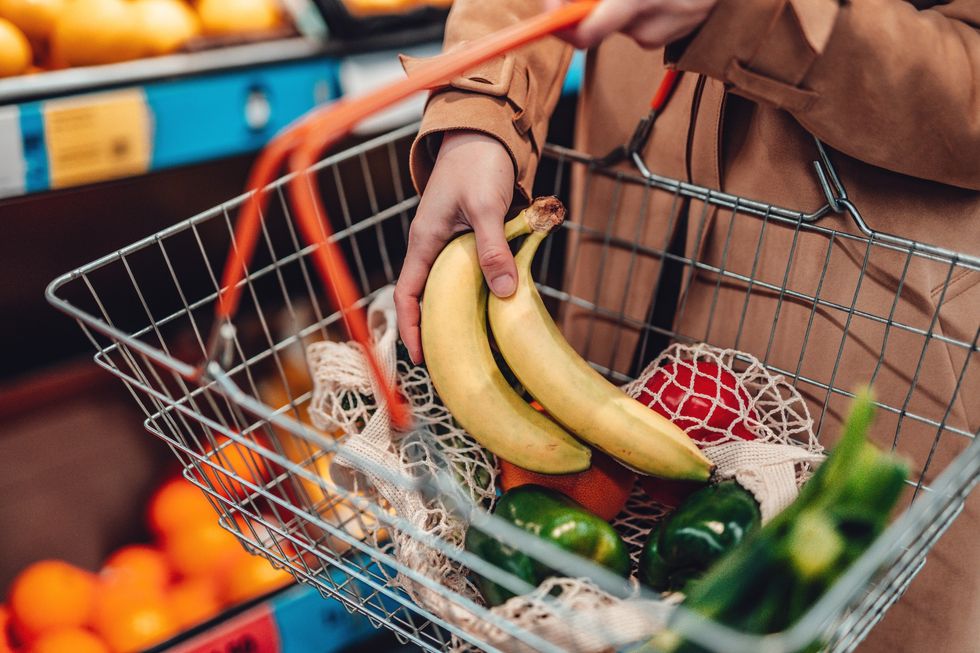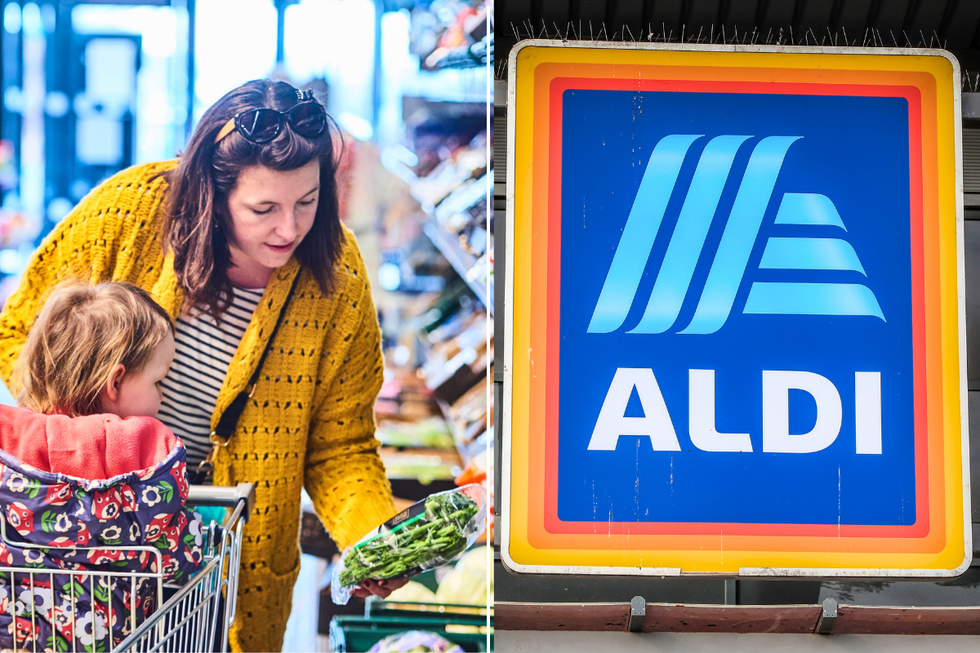‘It’s alright for them!’ MPs blasted as they brace for inflation-busting pay rise while farmers suffer: ‘Worst two years this century’
GBNEWS
This comparison by Which? compared Lidl, Aldi, Asda, Morrisons, Ocado, Sainsbury’s, Tesco and Waitrose
Don't Miss
Most Read
Aldi has been crowned the UK's cheapest supermarket once again, as shoppers are being hit with the highest grocery price inflation in over a year, as new data shows.
Grocery inflation surged to 3.8 per cent in the four weeks to April 20, driven largely by a near 20 per cent spike in chocolate prices.
Aldi has been crowned the UK's cheapest supermarket for the fourth consecutive year, according to the latest research from consumer group Which?.
The German-owned retailer maintained its position at the top of the rankings despite close competition from rival Lidl.
Which? compared prices across eight major supermarkets, with Aldi charging an average of £133.73 for a shopping basket of 79 branded and own-label groceries.
This victory continues Aldi's impressive run, having won the title every year since 2022. The research included loyalty prices and special offers but excluded multi-buy promotions.
Shoppers continue to feel the squeeze as chocolate prices have soared by nearly a fifth, contributing significantly to the overall rise in food costs.

Despite rising prices, shoppers are finding ways to manage their grocery bills through discounts and loyalty schemes
GETTY
Despite rising prices, shoppers are finding ways to manage their grocery bills through discounts and loyalty schemes.
Retail analysts Kantar revealed that spending on promotions reached 29.7 per cent, the highest level so far this year.
Fraser McKevitt, head of retail and consumer insight at Kantar, said: "The grocers have been sharpening their pricing strategies to stay competitive in the fight for footfall.
"They've invested in price cuts which were the main driver of promotional growth."
Loyalty card deals have become increasingly important, with spending on these offers growing by £347million.
At Tesco and Sainsbury's, nearly 20 per cent of items sold are on price match promotions, appearing in almost two-thirds of shopping baskets.
Despite inflation concerns, overall sales across UK supermarkets rose by 6.5 per cent in the four weeks to April 20.

The Which? research compared 79 branded and own-label products
GETTY
Lidl came a close second to Aldi, with a basket costing just 67p more at £134.40 with the Lidl Plus loyalty card, or £134.43 without. The gap between the two discounters has narrowed compared to previous years.
Tesco with a Clubcard was third cheapest at £146.79, followed by Asda at £147.09. Without loyalty cards, Tesco’s basket rose to £149.83.
Waitrose was the most expensive, with a basket costing £176.41 — £42.68 (32 per cent) more than Aldi for the same shop. For larger branded shops, Asda came out cheapest.
Beyond Aldi, Lidl, Tesco (Clubcard) and Asda, the ranking continues with Sainsbury’s (Nectar) at £150.46, Morrisons (More card) at £155.47, and Ocado at £167.20. Shopping without loyalty schemes pushes prices even higher across the board.
The price gap highlights the potential savings for shoppers willing to switch supermarkets.

Loyalty schemes continue to offer significant savings across most major supermarkets
PA/ALDIFor larger shops covering 203 items, including many branded products not stocked by discounters, Asda emerged as the cheapest option at £498 on average.
Reena Sewraz, retail editor at Which?, said: "Aldi has once again been crowned the UK's cheapest supermarket in our monthly price analysis, however, Lidl has narrowed the gap with its rival.
"It was also a strong month for Asda, as it continues to be the cheapest supermarket for a bigger list of groceries.
"Shoppers are still feeling the effects of food inflation, and with prices forecast to rise again, people are likely looking to cut costs where they can."
A Waitrose spokeswoman defended the supermarket’s position, saying: "Our customers know that there's more to great value than just price, and we combine excellent quality, industry-leading animal welfare standards and fantastic customer service."
Meanwhile, the Institute of Grocery Distribution’s Hungry for Growth report identified food inflation as one of the biggest financial challenges facing UK households in 2025.












